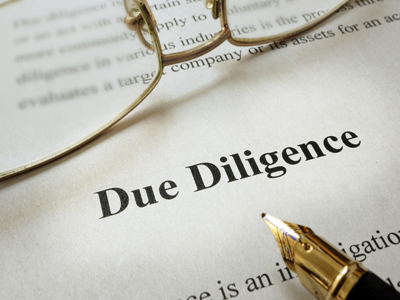Business buyers many times ask in my ProBuy consulting sessions - how long should I ask for due-diligence when buying a small business? The answer really depends on several factors. They include: type of business, demand for the business, complexity of the business. Advisors weigh in on this topic.

Comments & Feedback From Pro Intermediaries & Pro Advisors On BizBen:

 Frankly, one of the conditions that a seller should consider in addition to the offer price is the buyer's commitment to expeditious and efficient due diligence ... having his professional advisers ready to act and his questions ready to pose. Because, no matter how much the buyer is offering for the business, if he is not going to be serious about due diligence, time WILL kill the deal, and the seller will end up with nothing.
Frankly, one of the conditions that a seller should consider in addition to the offer price is the buyer's commitment to expeditious and efficient due diligence ... having his professional advisers ready to act and his questions ready to pose. Because, no matter how much the buyer is offering for the business, if he is not going to be serious about due diligence, time WILL kill the deal, and the seller will end up with nothing.

 10-14 days is enough time for the buyers to do their due diligence, especially on a restaurant. I have found that if the buyer is not really satisfied, it's over rather quick.
10-14 days is enough time for the buyers to do their due diligence, especially on a restaurant. I have found that if the buyer is not really satisfied, it's over rather quick.

 First, it's extremely important to have a very clear and specific due diligence clause in the purchase agreement, with an unambiguous date and time after which the buyer no longer has the option of canceling the contract. And, there should be a clear definition of the penalty, such as forfeiture of the deposit, if the buyer attempts to terminate the contract after the due diligence period has expired.
First, it's extremely important to have a very clear and specific due diligence clause in the purchase agreement, with an unambiguous date and time after which the buyer no longer has the option of canceling the contract. And, there should be a clear definition of the penalty, such as forfeiture of the deposit, if the buyer attempts to terminate the contract after the due diligence period has expired.
